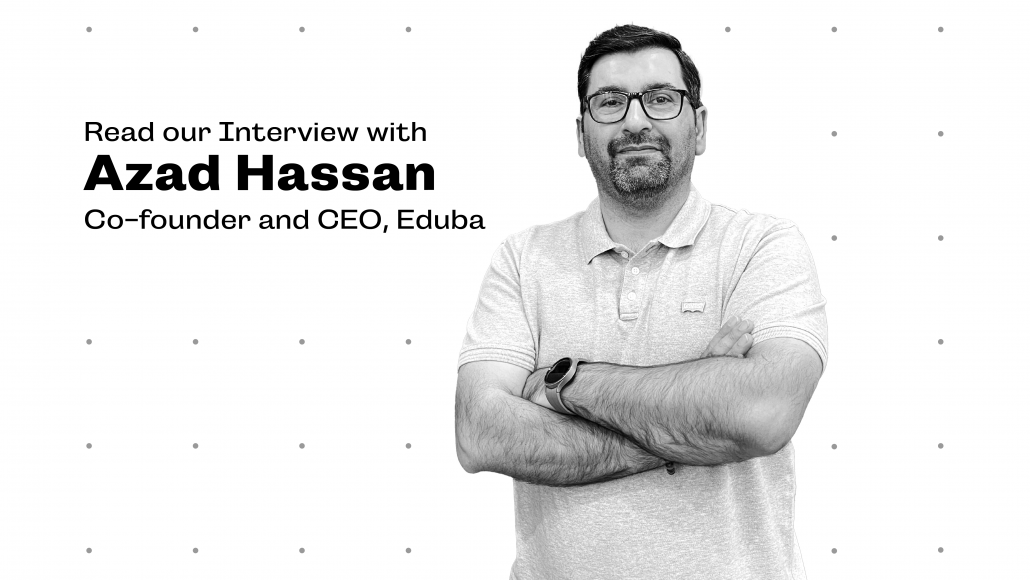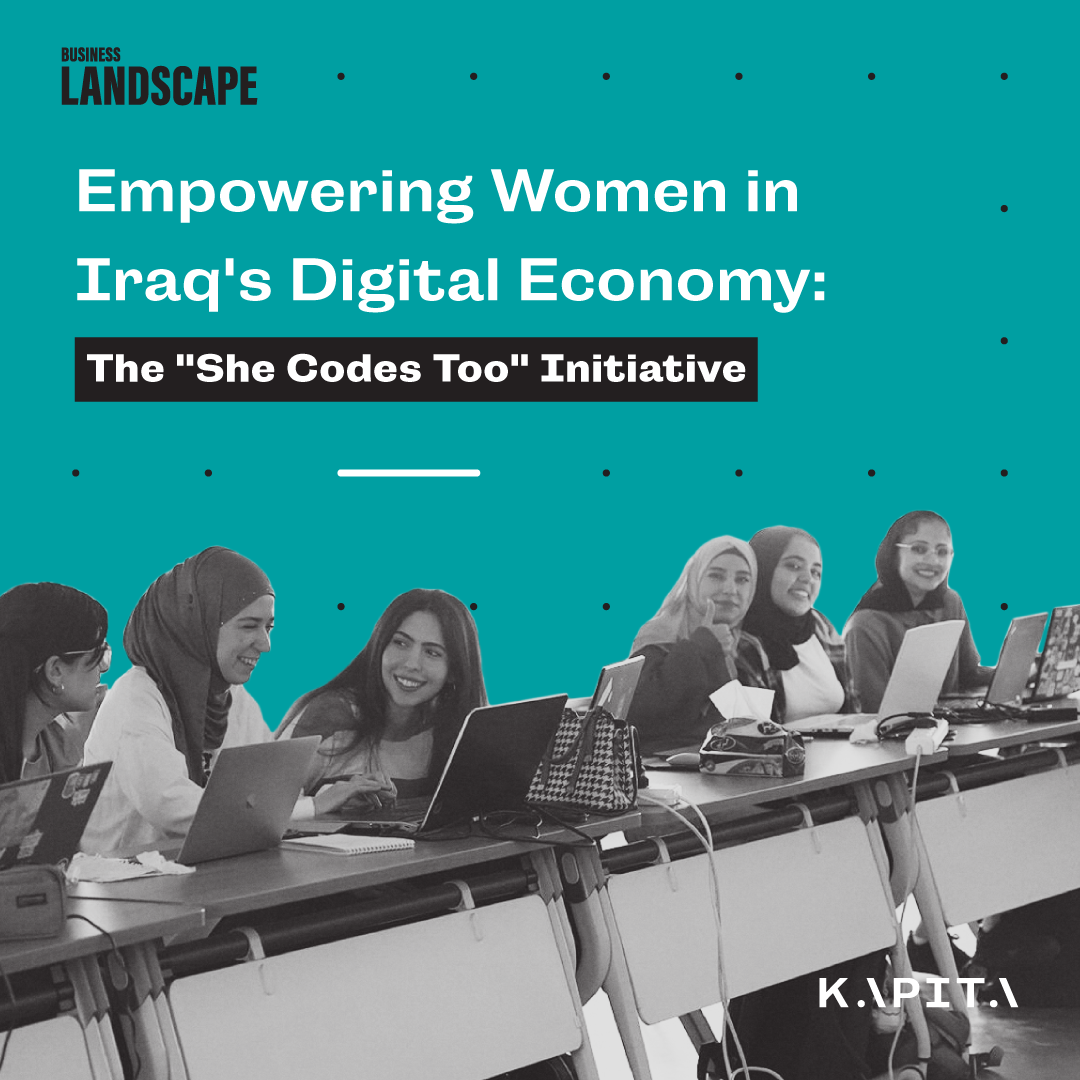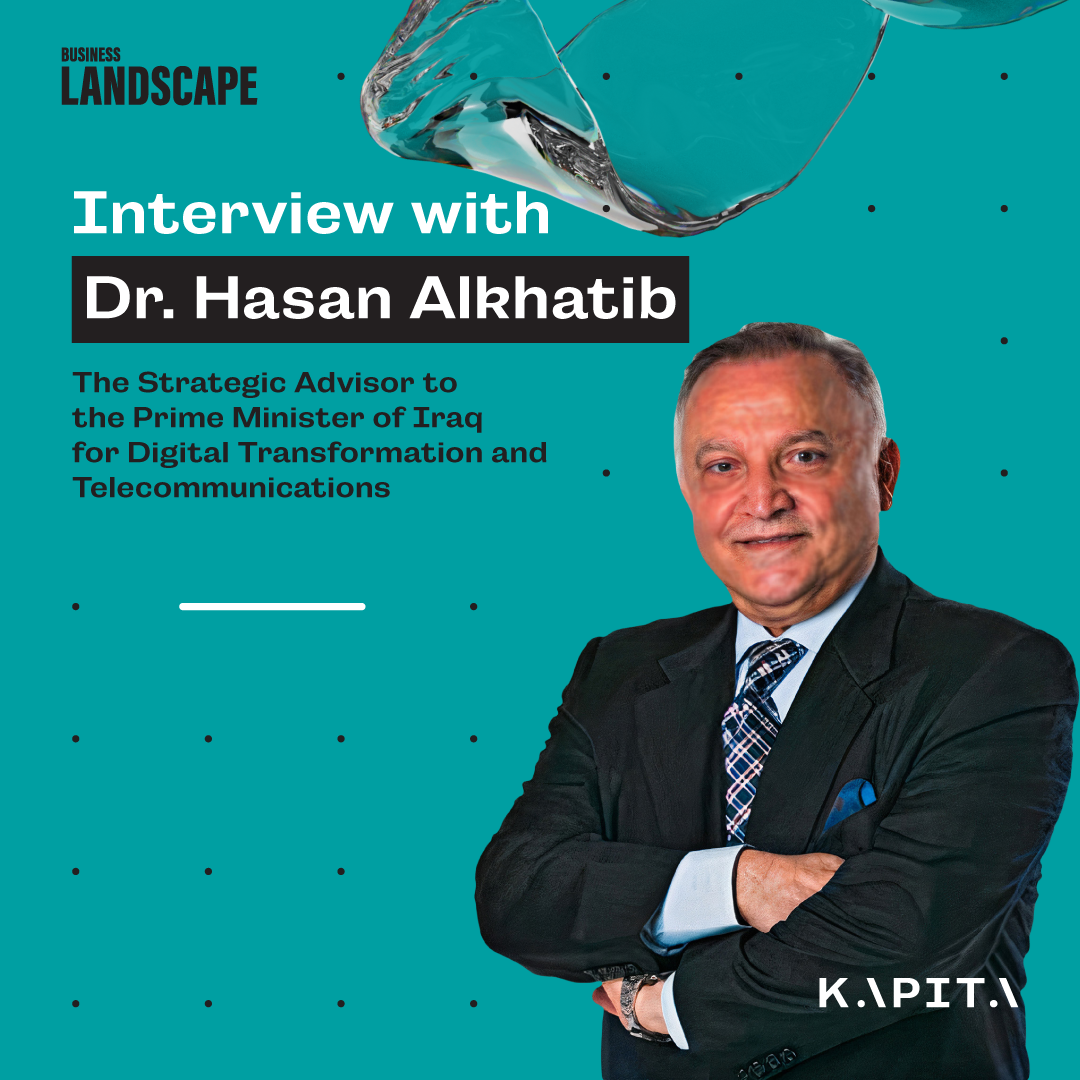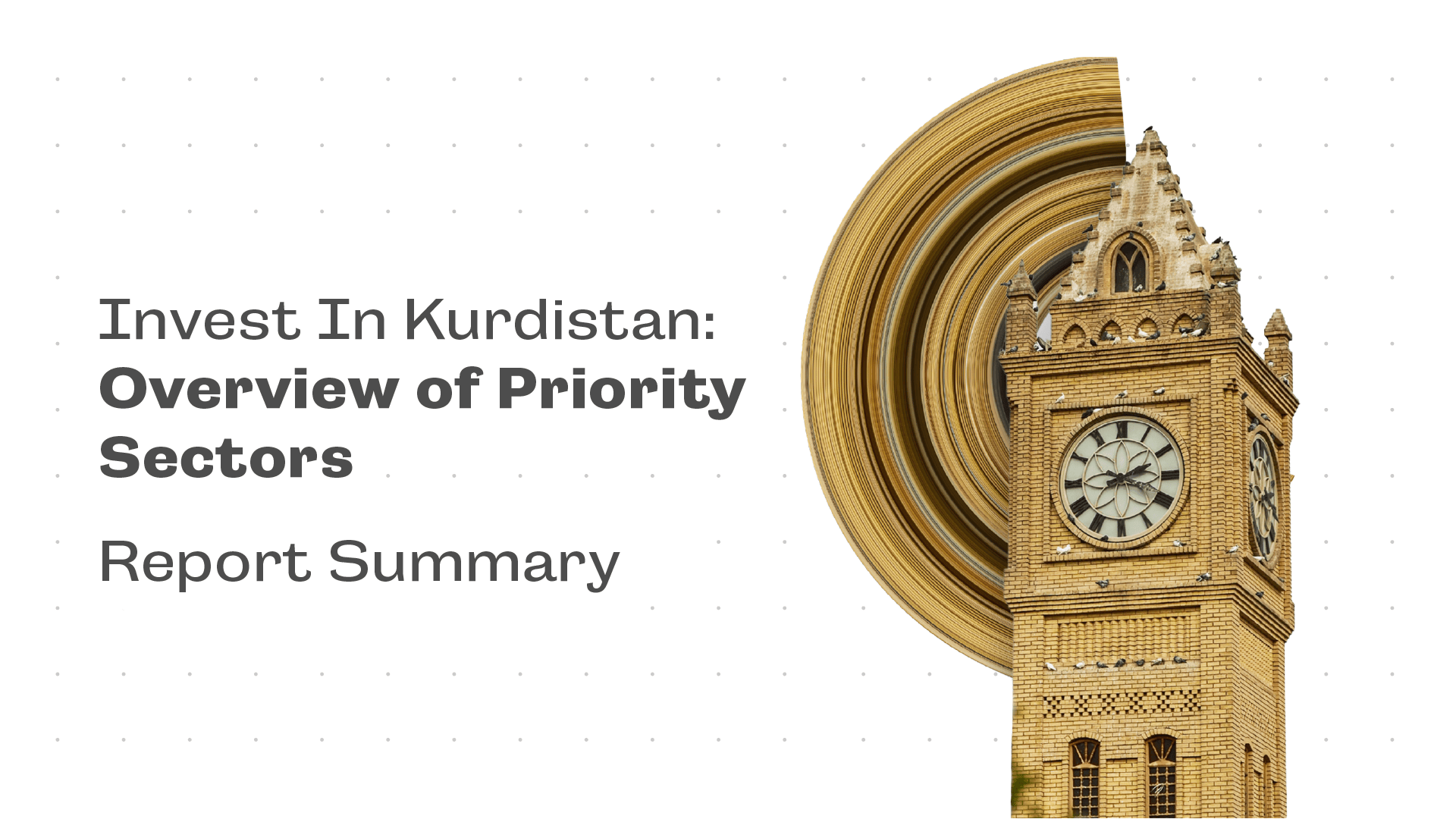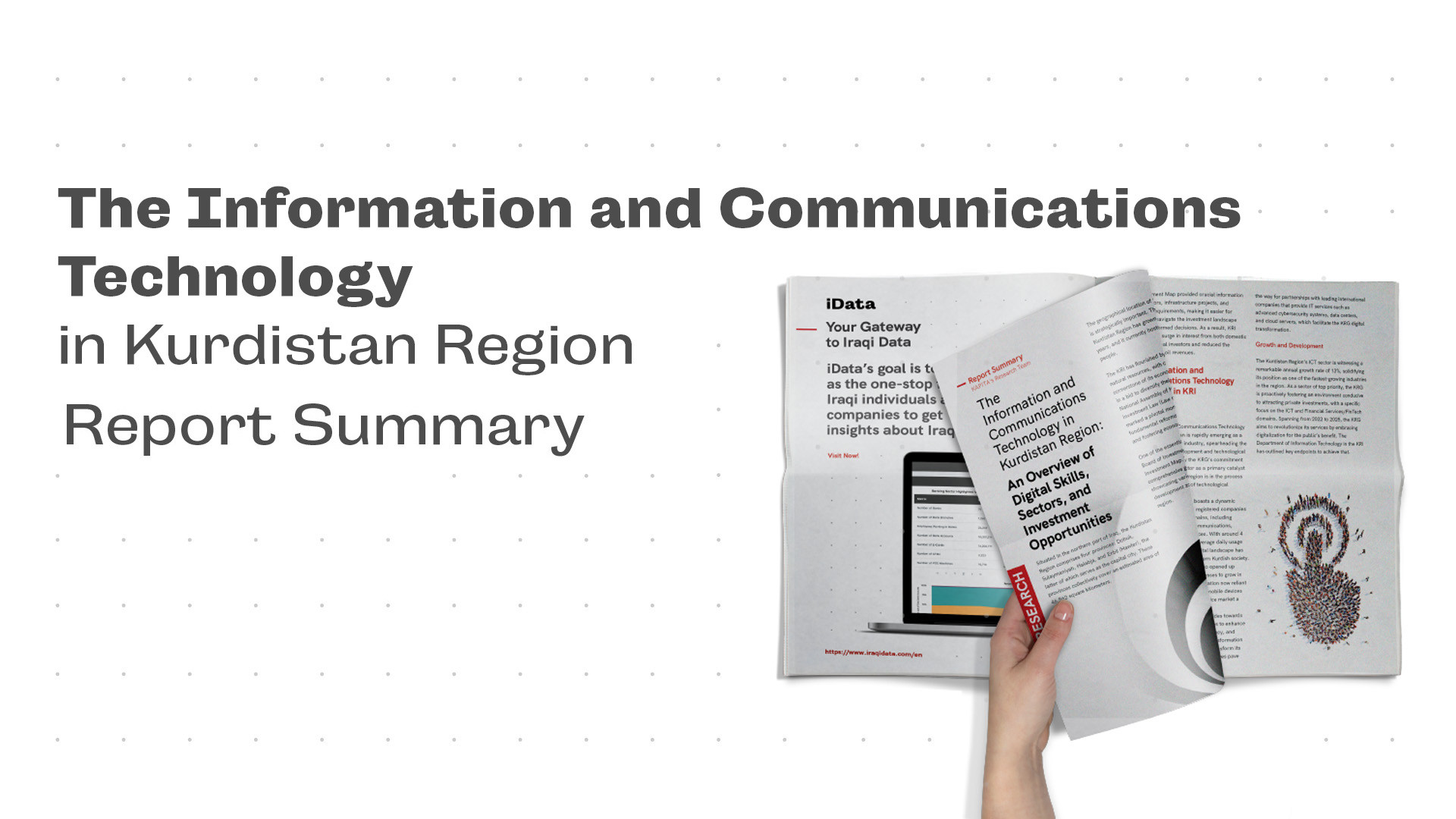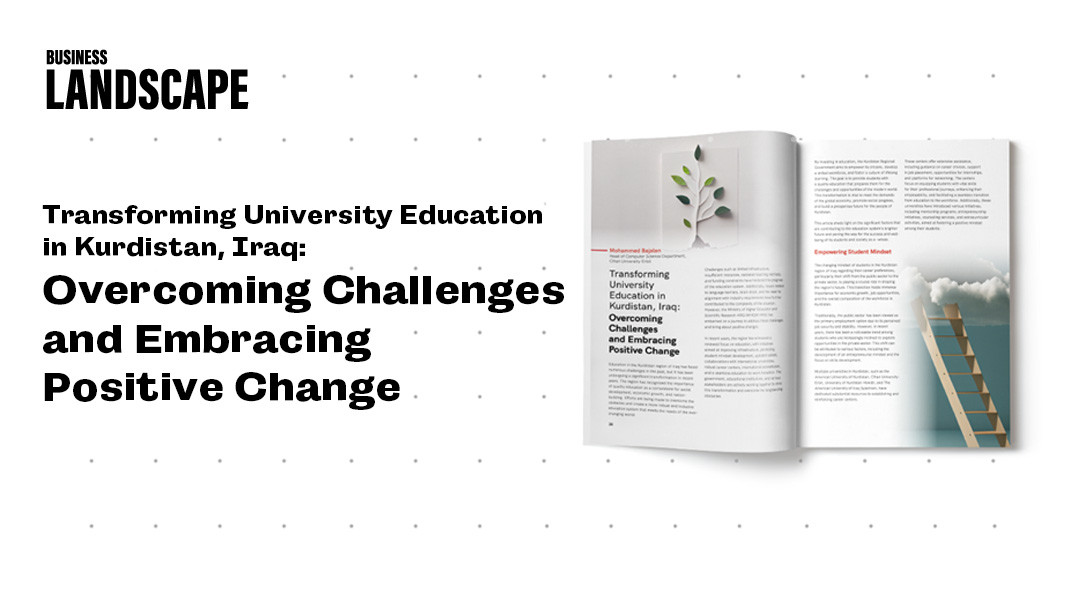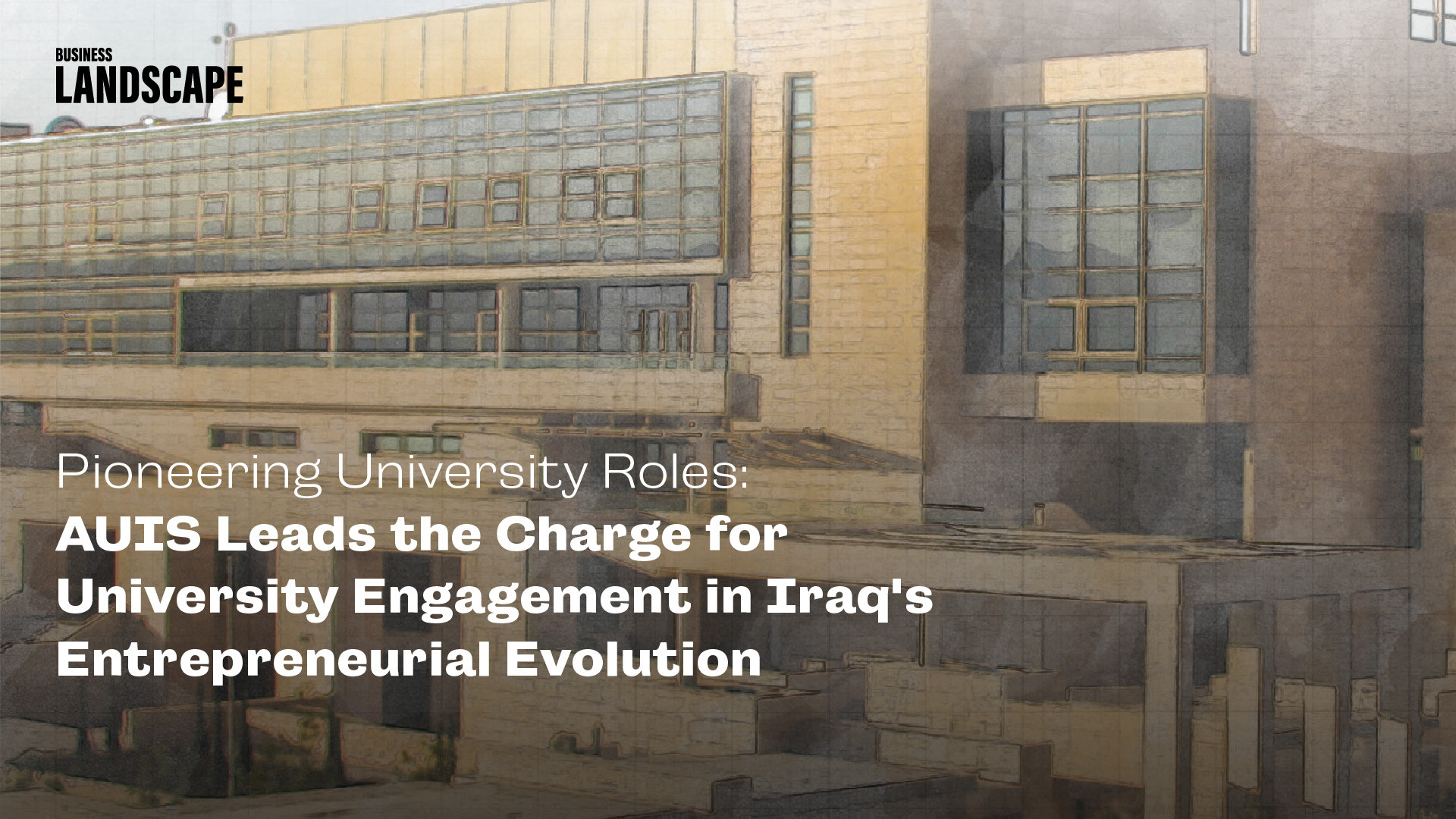Business LANDSCAPE Interview
Azad Hassan
Co-founder and CEO, Eduba
Azad Hassan is the co-founder and CEO of Eduba, an ed-tech super app in Iraq that provides a variety of services, including a learning management system, interactive educational content, a communications system, ride-hailing tracking, and a digital wallet. Prior to starting his own startup, Mr. Hassan spent most of his career in education, teaching statistics and relative topics to planning in many universities in Iraq and the United States. During our conversation, Mr. Hassan shared his journey and the challenges he faced while building Eduba, as well as the critical role of digital transformation. He also discussed Eduba’s vision, values, and the strategies for building the right team to scale up the company.
We would love to start with a brief introduction about you.
My name is Azad Hassan. I am currently the CEO and Co-founder of Eduba, an ed-tech super app. I completed my bachelor's degree and my first master's degree in statistics.
I used to work as a university professor, where I mainly taught statistics and related topics at various universities in Iraq from 2006 until 2012. In 2013, I left the country to pursue my Ph.D. studies in urban and regional planning in the United States. I lived in the United States from 2013 until late 2021. While pursuing my Ph.D. studies, I continued to teach statistics and other topics at Michigan State University and Lansing Community College. I also worked as a consultant with a couple of companies in the United States.
How did you make the leap into the entrepreneurial world? And why did you choose the education sector?
The story began in 2016 when I was a Ph.D. student in the United States on an Iraqi government scholarship. That year, there was an issue with sending the monthly stipend for all Iraqi students in the United States, and we were not receiving our paycheck for around nine months. As a Ph.D. student supporting my family, my wife, and my three children living in the United States, I was almost broke for nine months. Hence, I decided to start my own business that could generate revenue so that I would not be dependent on my monthly stipend. That was my main motivation in the beginning, which led me to quit everything, become an entrepreneur, and start building a startup. However, at the time, I was unaware of the risks that come with building your own business and how long it would take until it becomes profitable.
I founded two startups while living in the United States, in two different sectors, and both failed due to different reasons. I evaluated everything I had done and investigated why I failed. I took all the lessons from those two different experiences and, with other co-founders, founded Eduba.
On the day we, other co-founders and I decided to launch Eduba in early 2019, I had a gut feeling that this one would be different, and I am on the path of building something that will make me proud. Otherwise, I am either on the wrong path or have not yet learned the lessons. In addition, my background was deeply rooted in education as I used to teach at universities, and I am very familiar with this sector, the mindset, the needs, and the gaps in the market. Hence, I was able to navigate this sector successfully.
What is Eduba, and what is it trying to achieve?
At the beginning of 2019, Eduba's mission was to be a simple learning management system application offered mainly to private schools in Iraq to maintain their daily activities, such as sending homework, communicating with students and parents, taking attendance, and other tasks. However, the first academic year, 2019/2020, was a financial disaster for us. The balance sheet was negative, and the other co-founders were very unhappy that a couple of them tried to shut it down, but I stood against that intention and was willing to get a loan from the bank to fund Eduba and continue to pursue Eduba’s dream.
After operating in the Iraqi ecosystem for two to three years, we realized that a learning management system alone was not enough to meet the market's needs. When I returned from the United States in late 2021, the team and I decided to restructure the vision of Eduba. Instead of solely being a learning management system, we began building an ed-tech super app that dedicates its mission to enriching the learning journey.
The new Eduba is an ed-tech startup that provides a learning management system (LMS) and other digital services to educational institutions of all kinds and sizes. Their platform includes features such as class and educational content management, electronic exams and homework, human resources management, administrative correspondence, and financial resources management. Eduba also offers innovative products like Malzamtik, an interactive curriculum that provides educational materials to students, and Daleelik (your guide in Arabic), a licensed app by the Ministry of Education that provides a comprehensive guide to educational institutions in Iraq. Additionally, they offer financial technology solutions through their e-wallet platform Jizdanik (your wallet in Arabic), and ride-hailing services through Mishwarik (your trip in Arabic), which includes a bus tracking feature to ensure the safety of students during transportation. In terms of recognition, Eduba has won several awards and achieved notable milestones in various startup incubator programs, such as the Startup Roadshow program, Scaleup Academy by KAPITA, and the Iraq Entrepreneur Competition. They have also won third place in the Winvestors competition funded by the Dutch Embassy in Iraq and implemented by The Station Foundation for Entrepreneurship.
Why did you decide to restructure Eduba to be a super app that operates in many different sectors besides ed-tech? And what are the accompanying challenges?
Since 2019, our approach has been to engage with our customers or end-users on a daily basis, connecting with them through various channels to collect feedback about the product, user experience, issues they encounter, and the features they would like to see improved or added.
One thing we noticed is that many of the features in the old version of Eduba were not understood by end-users, mainly parents, because the business model was B2B. This means that if a school used a certain feature, such as a tracking system, parents could benefit from it. Nonetheless, if the school did not use it, the feature would be useless to the parents. This showed us that being a learning management system using a B2B business model caused us to miss a large part of the market, which is B2C. Therefore, we started developing the super app.
We wanted to provide end-users with more flexibility and features, including ride-hailing. We are not aiming to become the next Careem or Baly but rather to serve end-users needs in ways that align with the needs of the educational ecosystem. Hence, our ride-hailing option is a tracking system where parents can track their children when they are picked up and dropped off at school. Additionally, there are many cash transactions worth millions of Iraqi dinars between school managers, owners, parents, and students. Therefore, we created Jizdanik, an e-wallet. We identified needs and gaps in the ed-tech sector and came up with ways to connect all these aspects in one ecosystem. I know the mission is not easy, and it might even sound outrageous, but I believe we have what it takes to succeed. We are creating a new and unique super app run by Iraqi youth and developed by Iraqi developers to be an Iraqi success story.
Currently, our biggest challenge is finalizing all these features and raising awareness about our application. Many people are not familiar with the term "super app." As such, we are trying to spread our message and new vision to our targeted market segment and end-users about who we are, what we are trying to achieve, and how our application can serve them. This will take time until the concept of the app becomes familiar to the public.
Eduba and other platforms are contributing to the digital transformation in Iraq; how is this important to our ecosystem?
Eduba, along with other platforms, is contributing to the digital transformation in Iraq. This is important for our ecosystem because it helps us understand the digital economy and why it is necessary now. Iraq is just beginning the process of digitalization in almost every service sector. In comparison to the United States, Iraq is at the stage of the 1970s when computers were first being used in every company. Therefore, we need to accelerate the process of digitalization and understand the digital economy thoroughly. This is a significant challenge for startups like Eduba and individuals who want to contribute to the digital transformation of Iraq.
You were licensed by the Ministry of Education to operate in the ed-tech sector. How was this process?
It took a bit of time for Eduba and other startups to be officially licensed by the Ministry of Education and be able to run, aligning with the regulations of the Ministry. The process was time-consuming, but it was smooth. The Ministry of Education has certain regulations and some requirements, and we worked on meeting them. So far, there are four companies or startups in ed-tech in Iraq that have the license, and Eduba is one of them. It gives us ultimate accessibility to many different market segments. Instead of operating mainly in Baghdad only, we are collaborating with the Ministry of Education to establish our presence in many other governorates. We are even focusing on different segments regarding the type of schools, whether public, private, vocational schools or kindergartens.
Are the current regulations and laws in Iraq generally meet the needs of startups like Eduba? And what could be done for them to be more supportive of your growth?
In general, the current regulations are outdated and need to be updated to align with the needs of the Iraqi market. The government should develop policies and regulations to scale up the entrepreneurial ecosystem of Iraq within the next decade. There is a dire need for improvement in the realm of laws and regulations. However, during the period that we have been working with the Ministry of Education in the licensing process, they supported us and provided us with all the official letters and documents to prove that our platform is approved and licensed so that schools, teachers, students, and parents can trust our platform.
Nevertheless, many things can be improved. Almost every single service in Iraq, whether in technology, health, or education, has been centralized by the government. There is little to no collaboration between public and private entities, and there are no rules or regulations that dictate how they can work together to enhance the ecosystem in general. I believe we will be on the right path once we start thinking about how to reinforce collaboration between the public and private sector and what are the functions and rules of the private sector, not just the big companies but even SMEs and startups.
There were a lot of opportunities for ed-tech during the COVID pandemic; how did you capitalize on that?
During the pandemic, education took place online, and classes were live-streamed. We capitalized on this shift by developing new features quickly to integrate into the application, allowing schools and teachers to connect with their students within the application and live-stream their classes. Thanks to this feature, we were able to increase the number of schools on the platform from around 20 to almost 100. A startup should always be able to act fast and adapt to changes.
I believe in the critical role of e-learning platforms, not just Eduba but all other platforms, whether local, regional, or even international. E-learning platforms provide an alternative learning path where children can continue their education from home, attend classes online, do their homework, and interact with their teachers and classmates. Still, this shift in education requires raising awareness, which is a challenging task. What the pandemic did was accelerate this shift toward e-learning and push end-users to adapt to this change quickly. Although the number of schools using ed-tech platforms has declined after the pandemic, the use of these platforms is now more popular than it was before COVID-19.
Could you tell us about your journey in the Iraqi entrepreneurial system, as you have participated in some startup support programs? And what do you think can be done to support startups further?
I was first introduced to the entrepreneurial ecosystem through the co-working space at the Station, where the Eduba team was working in the beginning. Then, we joined the Scale Up Academy acceleration program implemented by KAPITA. This experience equipped me with the necessary skills and tools to build a startup, as you cannot successfully set up a startup by just reading articles and watching documentaries. You need hands-on training and experience.
Through these programs, I met many mentors and instructors and had the chance to build my network. This network has been invaluable in building Eduba, as I can always ask for advice or consultancy and have better access to training programs and connections.
I would say that more support should be channeled towards facilitating access to funds. The scene has definitely developed in the last few years due to the increase in the quality and quantity of incubation and acceleration programs implemented by many entities in the ecosystem, including KAPITA, the Station, Five One Labs, and many others. These programs have helped many entrepreneurs build their startups and navigate their journeys successfully. However, access to funds is still very challenging in the Iraqi ecosystem. There are very few opportunities in terms of securing funds, which is hindering the growth of many startups.
How are you building Eduba’s team? What are the values that you are trying to plant in the company culture?
The Eduba team has grown from only three people to 23 employees. I believe in the capabilities of Iraqi youth, so we are targeting fresh graduates and young people with some work experience, training them, and helping them learn on the job. I want to build the team from scratch and embed the company culture in them.
At Eduba, we adopt a flat management style with few levels of hierarchy. We trust our employees to do their job well and supervise themselves. Your position or title does not matter as long as you do your best and continuously seek to learn and improve. In the office, I sit in the same room as my employees, at the same desk; there is no separate office for me. I work with them and in front of them without hiding anything from them.
Our aim is to build a company culture based on mutual trust and transparency. I know this mission is not easy. However, by hiring fresh graduates and young people with a passion for growth, we are building a team that believes in the vision of Eduba and is dedicated to making it a reality.
Can ed-tech platforms become an alternative path to traditional education, or will their role remain supplementary?
It depends on the platform's mission, objectives, and target customers. In some cases, ed-tech platforms can serve as supplementary tool to support traditional education. Nevertheless, they can also provide an alternative path for specific customer segments. For example, if someone needs to take a course but cannot attend traditional classes due to work or schedule constraints, an ed-tech platform can offer the flexibility to take the course online at their own pace. Ultimately, the role of ed-tech platforms in education will depend on the quality and accessibility of their services and how well they meet the needs of their target customers.
Could you tell us about Eduba’s partnership with OpenAI?
OpenAI has become an essential tool for many EdTech companies, including Eduba. That was the main reason that made us think about creating this partnership.
The advanced AI capabilities provided by OpenAI enable Eduba to develop and enhance its platform's functionality and features, providing a more personalized and effective learning experience for students. Additionally, OpenAI's language models and natural language processing capabilities help Eduba to improve its language learning features, such as speech recognition and language translation.
The partnership between Eduba and OpenAI involves collaboration on developing AI technologies, sharing expertise and resources, and using OpenAI's tools and platforms to enhance the capabilities of the company's products. This partnership can help Eduba to drive innovation and progress in AI research and development.
What features will the integration with ChatGPT add to Eduba’s super app?
Eduba and ChatGPT can create an AI-powered virtual assistant specifically designed for the Iraqi education system. This virtual assistant can be integrated into educational institutions and help students and teachers alike to achieve better outcomes through personalized learning experiences.
The virtual assistant can be accessed through a mobile app or a web-based platform, and it can provide a range of services. For example, it can help students identify their learning goals and create personalized study plans that take into account their learning styles and abilities. It can provide personalized feedback and recommendations to students on how to improve their academic performance. Moreover, it will assist teachers in creating engaging and interactive lesson plans that incorporate AI-powered tools such as natural language processing, speech recognition, and machine learning algorithms. Additionally, the virtual assistant can analyze student performance data and provide insights to teachers on how to tailor their instruction to meet the needs of each individual student.
Eduba and ChatGPT can leverage their respective networks and partnerships to establish a distribution and outreach program to make this virtual assistant more accessible to students and teachers across Iraq. This could involve collaborating with local schools and universities, as well as partnering with educational NGOs and government agencies.
By combining their expertise in AI and education, Eduba and ChatGPT can revolutionize the educational experience for both students and teachers in Iraq. Their virtual assistant can help bridge the gap between traditional teaching methods and modern technology, enabling more students to achieve academic success and helping to build a brighter future for Iraq.
Are there any other AI tools that will be integrated with Eduba in the future?
Eduba is constantly exploring new technologies and AI tools that could enhance the platform's capabilities and offer better services to its users. While there is no specific information about which AI tools will be integrated with Eduba in the future, the platform is always looking for ways to improve and provide innovative solutions for the education sector. As AI technology continues to advance, it is likely that Eduba and other EdTech companies will integrate more AI tools to capitalize on their potential to improve the platforms' performance and the solutions offered.
What does the future hold for Eduba?
In the next 3 to 5 years, our vision for Eduba is to become the leading ed-tech application in Iraq, widely adopted by users across the country. We aim to continue expanding our services and developing the application to ensure that every user, whether they are students, parents, or educators, can benefit from Eduba's features, including the learning management system, payment methods, interactive learning content, and ride-hailing services.
Currently, we are operating in several governorates, including Baghdad, Karbala, Najaf, Anbar, Kirkuk, Sulaymaniah, and Babylonl. Our goal is to expand our operations to all other governorates, reaching more schools and educational institutions in both urban and rural areas. By doing so, we hope to create a more inclusive and accessible education ecosystem in Iraq, leveraging the power of technology to improve the learning experience for all.
